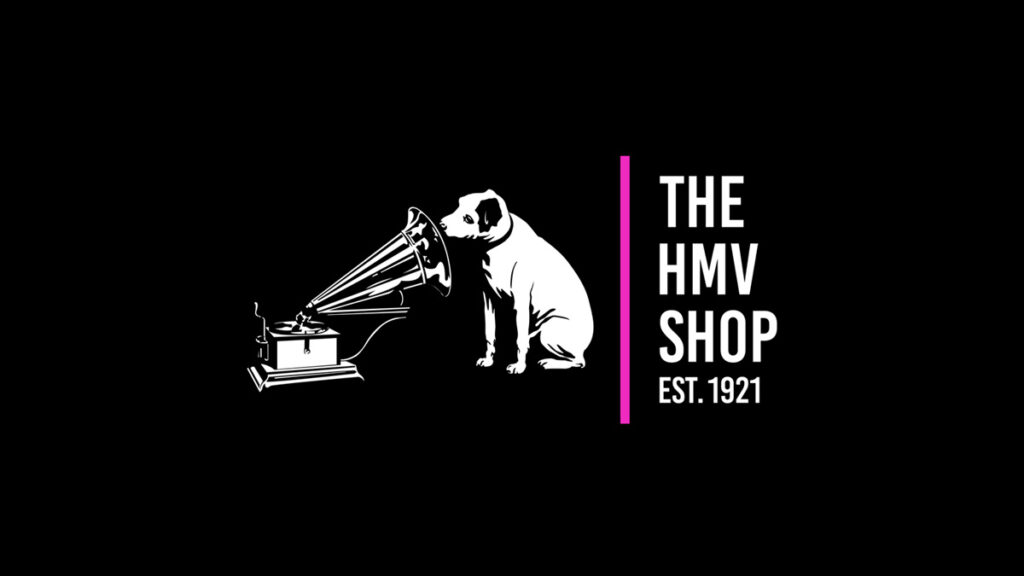HMV’s third act: The return to Oxford Street

Opened by The Gramophone Company on London’s Oxford Street in 1921, HMV has had a long-standing history as a high street brand.
With the famous trademarked image from a painting by Francis Barraud titled His Master’s Voice acquired from the artist in 1899, Nipper (the dog in the painting) and the Gramophone became symbolic of high street trading and entertainment branding.
But the company has had a tumultuous history and gone into administration twice, in 2013 and then again in 2019. Off the back of the news that the brand has reopened its Oxford Street flagship store, is it a miracle that it’s still standing, or is it simply good planning?
An iconic store
With continued capitalisation on customer demands, HMV has succeeded in being a prevalent brand, to an extent. Prior to the 2013 administration, HMV, according to the company’s former CEO Simon Fox, had the widest range of music and film, along with great locations. It was, as Fox says, “the preeminent entertainment brand of its day”.
During the first decade in Oxford Street, the company saw a rising demand in electrical items, being dubbed ‘Home Entertainment and Electric Housekeeping,’ and continued to develop selling items from gramophones to vacuum cleaners. Through rapid expansion, HMV saw a dramatic rise in store openings across the country.
With the rise of the Compact Disc (or CD), HMV continued to transform. They launched a transactional website in 1998 for an expanded range of choices for consumers. They even acquired companies like Ottaker (which was merged into the Waterstones brand).
Fox says HMV “adapted its product range” to selling band t-shirts and merch, vinyl, and computer games, amongst a plethora of others, outlasting popular brands like Blockbuster, Woolworths, and Fopp. HMV continued to enhance their offerings, capitalising on the fact they were one of the only entertainment brands left on the high street.
Administration(s)
In 2006, when the former chief operating officer for HMV Brian McLaughlin, retired he told us he “began to feel things weren’t going to be good”. The physical market for CDs, DVDs, and games began to slow. The introduction of iTunes and streaming sites meant people started to download singles. Car manufacturers stopped installing CD players in vehicles, causing retailers to suffer as a result.
The introduction of Amazon providing ‘revolutionary technology’ sold a dismal tale for HMV’s business, according to McLaughlin. In order to compete with the trading giant, HMV would have required a “bottomless pit of money” that they didn’t have.
However, Fox maintains that the 2013 administration was the only route to save the company in the long term. HMV simply had too many stores and needed to shed a number of the largest and least profitable stores. In fact, the ex-CEO says it’s “remarkable and encouraging” that the company still has so many stores. As of November 2023, HMV had 118 locations. However, this is a massive decline from their 293 stores prior to 2013.
By the time the company went into administration in 2019, the world had experienced a surge towards streaming services. For Spotify, in Q1 of 2015, they had 68 million active monthly users, but by Q4 of 2019, the numbers grew to 271 million, according to Tech Report.
How was a brick-and-mortar store selling physical copies of music meant to compete with easily accessible streaming services?
McLaughlin only had positive notes on HMV’s 2019 fall into administration. He praised Hilco and Paul McGowan for keeping HMV afloat after 2013. He says, “They were serious about trying to retail it as a high street business with an iconic brand.” He notes, however, that the economics didn’t work for them.
Kim Bayley, CEO of ERA (The Digital Entertainment and Retail Association) remained hopeful, saying the “physical entertainment market is still worth up to £2bn a year” so there was still business to be made. She continued referencing their 2013 turnaround saying, “It is conceivable that this will happen again”.
Oxford Street
Doug Putman, a Canadian billionaire and owner of Sunrise Records, acquired HMV for £883,000 in 2019, saving 100 stores and 1,600 jobs.
Thankfully for HMV, “vinyl became fashionable again,” says Fox. Sunrise Records and Entertainment Ltd., the company that owns HMV, increased its turnover by almost 67%, from £90.4m in 2021 to £150.8m in 2022, capitalising on the £150.5m UK vinyl market in 2022.
The return to Oxford Street caused a media frenzy, stirring public excitement for the store’s reopening. Perhaps old fashioned in his views, but likely reflecting the public, McLaughlin says that “shopping online is not the same as visiting a store”. A sentiment that seemingly reflects the state of HMV sales.
Simply put, HMV is a sort-after store with a unique selling point making it a destination spot in the high street.
The future
Maybe the return to Oxford Street is exactly what the doctor ordered for HMV. The iconic storefront remains a destination point for many London shoppers, a sentiment that is reflected across shopping centres and high streets.
Bayley says HMV’s return to Oxford Street “is the ultimate vindication of his [Doug Putman] belief that HMV has a future in the 2020s and beyond.”
So, who knows what the future has in store for HMV, but in the right hands, there seems to be a reignited vigour behind the business that previous senior leaders like Simon Fox and Brian McLaughlin remain optimistic about.

